Arindam Ghatak is a film editor who graduated from FTII in 2006 (diploma films as editor- Chabi Wali Pocket Watch and On My Deathbed). He is from Kolkata, did his graduation in Psychology from Fergusson College, Pune after quitting his engineering course, after which he worked as a journalist with the Indian Express, Pune for a little more than a year before joining FTII in 2002. He has edited films like Rocket Singh, Salesman of the Year, Go Goa Gone, Happy Ending, Guddu Rangeela, Tanuja Chandra’s yet un-released Raakh, among others. He has also edited several documentaries like Urmi Juvekar’s Shillong Chamber Choir and the Little Home School, Surabhi Sharma’s Pregnancy, Prescriptions and Protocol, Altaf Mazid’s A Duet With the Water God (it won a national award), Parasher Baruah’s Waste and several others, as also Neha Choksi’s Leaf fall, Aftermath, Iceboat, Found Green for video installations. Currently, he is based in Mumbai…
As a child what were your early influences towards cinema? Art, literature, graphics, photography?
I don’t think I had one particular influence as a child, nothing specific that I can remember. In fact, I don’t think it was the ‘arts’ at all. That happened much later. In fact, films were pretty much a forbidden zone at home. My mother was very strict and a lot of emphasis was laid on academics and I was a good student. But on the other hand, she took my sister and me to watch films like Superman and Born Free and ABBA and Goopy Gayne Bagha Bayne and 20,000 Leagues under the sea when they released in the theatres. Bollywood and film magazines were forbidden but my aunts (it was a sort of a joint family till a few years after my grandfather passed away) loved filmy gossip and Stardust, Filmfare, Star n Style etc were always lurking around in some corner of the house which I would quietly sneak up and read sometimes when my mother would be away at work.
I also liked to read books and comics but it was random stuff- Enid Blyton, Archies, maybe a classic here, a Sidney Sheldon there. But I was a day dreamer and spent hours in the afternoon in our lovely verandah (The verandah was on the first floor of a two story house. It was quite big, especially in length, had a lot of light streaming in, a huge krishnachura (gulmohar) tree literally leaning against it. Neither the verandah exists anymore nor the tree.) staring out into the street (a little bylane in south Calcutta), sometimes reading, sometimes jumping through my skipping rope and soaking in that afternoon light on holidays. I can almost feel that light. I think impressions like these are what drew me to cinema and I have strong impressions stored somewhere within me from almost every moment of my life. Art, Literature, photography, music, cinema itself happened to me much later when I moved to Pune at 17 to study engineering. I spent ten years in Pune and that changed my world- the people I met, the life I lived, the films, books, music I was exposed to, my love affairs, working as a journalist at the Indian Express, studying at FTII, living in hostels- I think I ‘grew up’ in Pune, a late bloomer!!…
How did you first become interested in film editing?
At FTII. I think film-making was what I was always interested in. But I wasn’t sure of taking up the direction course at FTII simply because that requires a lot of self motivation and also, I don’t think I was leader enough. Film editing seemed like the next best tool to tell a story. Also, I wanted to do a technical course so that I could get by in Mumbai later. However, in my second year at FTII, during two workshops, one with Amitabh Chakraborty (film editor, filmmaker) and one with Arjun Gourisaria (film editor, filmmaker), is when I really got a kick out of editing. Both Amitabh and Arjun are very good editors and even better teachers and they provoked the till-then dormant editors in our batch, I think. I even started attending Amitabh’s workshops for my senior and junior batches- he had fired me up!!… Then a ten-day workshop with Walter Murch (the celebrated editor, sound designer) and my projects through my second and third years are what provoked me to work harder at editing (it became like solving a puzzle, tinkering around minutely with images and sound, almost like engineering in some ways, like sculpture in other ways). I had a good team at FTII (Vibhu, Anay, Mangesh and I) through the last two years and that helped in keeping the fire alive and kicking some more…
What steps did you take to train yourself?
Well, just naked working. I mean, it’s great to read up the innumerable books on editing (some by Murch are fascinating), it’s great to watch films and analyse but unless you get down and dirty at the editing table, sometimes till your body hurts, your eyes dry up and your brain won’t comply a minute longer, all the training in the world will be futile. Practicals, projects, workshops at FTII, and working in Mumbai since mid 2006, and at the risk of sounding cliche, am still learning. I really am!!…
Have you assisted anyone? How does it help one?
No, I did not. I was supposed to but at the last minute, it did not work out and then I did not pursue assisting anyone. My career just took these winding roads and I pretty much followed simply because I was mostly working (I was lucky though there were periods when I did not have work but they were few and nothing compared to some stories I have heard), doing documentaries, shorts, working on video installations with artists like Neha Choksi, I worked briefly as a promo director and editor at CNBC in their creative team, edited a few ads too and then films just happened!!… But many others have assisted and worked their way up. There is no one way to go about things. I have my journey, others have theirs, it’s all good!!…
How did your first film project come about? Tell us something about the experience.
My first feature film as editor was Shimit Amin’s Rocket Singh, Salesman of the Year for Yashraj Films in 2009. For someone who had never assisted, hadn’t really worked on a feature, had very little to do with Bollywood until then, this was like being thrown into the sea. I just had to learn to swim!!
Through January to March 2009, I was mostly jobless, editing a small corporate film here, something there. In April that year, I was going to Bangalore for a week to meet my sister and her family before they moved back to the US a month later. Just as I was leaving the house to board a bus to Bangalore, I got a call from Megha (Shimit’s wife who I knew from my FTII days when Megha was studying scriptwriting there) saying, “Arri, Shimit wants you to edit Rocket!! He is starting to shoot today. (It was a Saturday). You will have to start on Monday!!” I was shocked but I remember telling her, “I can’t start on Monday. I am going to Bangalore to meet my sister before they move back to the US and if I don’t go now I won’t get to see her.” So she asked me to call Shimit and hoped that he would wait for me till I got back from Bangalore. Well, fortunately it worked out; I cut my trip short and got back in five days, signed the contract, read the script and started work the following Monday.
But the first two months were nerve-wracking. I was overwhelmed that I was working with the director of Chak de India and working at Yashraj though I tried hard to not let all that show, and tried putting up a nonchalant facade but am not sure it always worked. The assistant editor at YRF then, Mitesh Soni, was very good at his job and very supportive and I think I picked up a lot from him in terms of organisation and from Shimit himself, ofcourse. It’s a known fact that Shimit is a very good editor himself, apart from being the celebrated director that he is. And he is also a workhorse, and expects everyone in his team to be thus. He is also an extremely generous, sensitive and ego-free a person who does not resort to status quo at any given point in a collaboration. Initially, I was a little apprehensive about the time when he would whole-heartedly concentrate in the edit post the shoot but after our first day together (till then he would just drop in for a few minutes every night at the edit), it was a breeze. I was working almost 7 days a week for those 7 months and it makes me happy that there was so much trust and ease at work between Shimit and me. It’s an experience I will cherish forever, really and truly!! A first film is always special by virtue of being the first film, yes, but Rocket Singh for me was so much more. Even though I later edited quite a few other films, that joy, that same sort of visceral impressions of the afternoons in the verandah that I carry over from my childhood is also what I carry over from my days at YRF on Rocket Singh…
What are your inspirations?
Varied- sometimes books, sometimes films, sometimes conversations with friends, stuff that I randomly read or surf over the internet and I love the internet, sometimes a streak of light, the stillness at night, bonding with my mother, taking long walks (this I don’t do as much as I used to; where to walk in crowded Andheri. I used to walk for long hours in Pune and it was bliss!!)- in short, it’s difficult to pinpoint inspirations; if one is even half-intense, half-aware, half-alive, one is soaking in impressions every moment in time and they are all worth every shine if you want them to be…
Is film editing intuitive or is it something you learn?
Both. It’s a craft that can be learnt and learnt well. A lot of my editing decisions are intuitive in the first go, but like writing, in editing too you revisit every decision several times and you realise that what you termed initially as intuition or instinct has a strong reason/logic supporting it- from why you put two shots together to why you cut a shot at a particular point or did not cut it. That awareness can’t come from intuition alone, I think. It can only come from learning the craft initially and then just working at it, or learning while working which is what many people do too.
Intuition can however, give you a certain ‘sixth sense’ about certain things, it can help shape or fine tune certain decisions, discard some bad decisions, keep that extra edge alive (that you might carry over as ‘impressions influx’, and a sharp intuitive mind can help sift through that and direct you to maybe a long-buried impression that might help make a current creative decision; we also call this a skill in assimilation- assimilating life-impressions vis-a-vis creative decisions that you can eventually reason out or not; sometimes a magic happens in the edit that logic or words might not do justice to. We call it serendipity, we experience it, it seems to work for everyone involved and then we move on)…
What part does risk-taking play in your work, if any?
Risk-taking is essential in every work, no? I mean, on a fiction film, I have a script that dictates the edit ofcourse. And then the material, the footage, the way it has been shot. But there is still much that you can do with that material, sometimes even in terms of structure. I do try out things in the edit in the first cut. It might work, it might not but you won’t know unless you try it out. If you have an idea, you should try it out, even if it’s far removed from the script- if it does not work, discard it and move on… And what works and what does not, is not my decision alone. There is a director whose vision we as a team are trying to work towards. There are producers and sometimes, all kinds of compulsions. There are writers, cinematographers; it’s a collaboration…
On a documentary ofcourse, there is a greater room to play around with structure and form, and that is fun too…
Do you think the audience is perceptive about an edit? What kind of feedback do you get from non-film maker audience for your work?
Am not sure an audience is really perceptive about an edit per se. For most lay-people, editing is about how fast-paced a story is or how slickly and stylishly something is cut or their boredom threshold (which may or may not be a legitimate measure of pace or story-telling). Sometimes, people have commented that so-and-so film was really fast-paced etc and it didn’t give them time to think. Now that could be fine, say for an action flick, but it can’t be a general yardstick for a good edit or a good film. Several times I have been asked (and am still asked), “So what do editors actually do? You join two shots together and take the bad bits out, right?” and I take a deep, invisible sigh and say , “that too” before I proceed to elucidate my little wisdom on film editing. These days sometimes, I just impatiently tell people, “Why don’t you google ‘film editing’ if you are really interested, and then if you are still further interested, we can chat over a cup of coffee!!”
Having said that, an audience should not be really noticing the editing while watching a film- this is an old school thought but it rings mostly true. You should be so engrossed in the story and the mood and the world of the film that it should just ‘organically flow’ for you- where, by the end of the film you have a lump in your throat of joy or sadness or excitement or whatever and the real world has to come knocking to get you out of your seat. Now if that happens, that would be my success!!…
Film technology is continuously changing. Do you think it affects you as an editor, in the way you want to tell stories.
No. Technology can sometimes dictate the form, and film-making is a technical medium, but it has never been a hindrance to my work as a film editor or a story-teller. One adapts, one learns, stories will have to be told, always. I am not really a ‘techno-horse’ but am a quick learner and don’t get bogged down by a plethora of softwares and formats and ports and wires anymore, not as much as I used to… If I dont know, I ask; and then I remember whatever I need to…
Your favorite films or editors? At least two of them?
Well, some of the usual suspects among film editors- Thelma Schoonmaker, Walter Murch, William Chang, and in India, again the usual suspects, Renu Saluja, Dulal Dutta, these are some of the stalwarts ofcourse whose work have stood the test of time. Films, too many; impossible to list only two…
Any hurdles you have encountered in your journey. Things that are blocks in a achieving your vision while working on your film.
I think the question is a bit flawed. It’s not my vision alone and it’s not my film alone. In fact as one of the lead collaborators on a film (whether fiction or non-fiction), I have to understand the vision of the director and then take off from there. I can add to it sure, but I also need to understand the tone of the script (in case of fiction films), the texture of the material, the shot-taking, the tone and pitch of the performances (in fiction). Nobody works in isolation on a film and the only hurdle I think can be your ego and inflexibility. I think problems happen when you can’t let go and think you are bigger than the film. The moment you let go, and yet own the film because it’s your work and it’s close to your heart, the hurdles will be less since the egos will be in check. It’s a bit like meditation and can be applied to work and life as well- the concept of simultaneous attachment and detachment. As an editor, the film wasn’t your baby to begin with, yet somewhere down the line it did become your baby and you did mother it much and shape it and nurture it but after a point, you just have to step back and watch it spring to life. A film is a director’s baby. Period!!…
Do you often get all that is in your wish list or is it a hard bargain every time?
Well, I never ask for the moon!! All I ask for is a decent room to work in. I do make sure the room is done up to be a warm enough, livable space so that I will want to spend 8 to 10 hours everyday, for several months toiling out of it. If you just throw a table and a chair and a computer into a shoddy, depressing room and ask me to edit there, it means you have little respect for your own film, let alone your collaborators. I also insist on a good chair because I have a bad back and a slip disc in my neck. I have been fortunate enough to get enough creative space on all my films so no complaints there. I would like to be more involved with a film from the scripting stage maybe, or atleast from the pre-production stage but that rarely happens. I would also like to be involved in the sound design and background score and mixing since one does a bit of the sound design and lays a reference background score while editing but this has been feasible only in one or two of the films I have worked on including Rocket Singh. Sometimes after finishing an edit on one film, I have moved onto another film and thus this might have not been possible as well.
What is in the kitty now?
Am doing 3 Storeys (working title), an Excel Entertainment co-production with Open Air Films, directed by Arjun Mukerjee. Hopefully, this should release early next year. There are also talks on for two more films but am yet to sign them.
Any advice to the aspiring editors?
Am not good at giving advice, definitely not generic advice that will sound like dollops of pontification. Just do your own thing and cherish your journey…
Any memorable blunders?
Yes. Well, not really a blunder but bit of an idiocy. I was so nervous on my first day at Yashraj, my first day on Rocket Singh that my mind was mostly blank through the day. Yrf had three edit suites and the mains were in another fourth room and Mitesh was showing me where the mains are and before leaving everyday, he asked me to check if the other two rooms were empty and if they were I could then switch off the mains, but me, in my nervousness switched off the mains right then, at 6.30 pm while there were editors toiling away in the other two rooms. They came running out, flustered, and Mitesh stood there shell-shocked staring at me who was red in the face by then, mind still blank. The next morning was better and the subsequent weeks and months only got better and more exciting as I got more in tune with the film, and the set-up and also much less overwhelmed.
Your dream project?
I don’t really have a dream project. That’ll probably be something I write and direct maybe. As an editor, am open to doing varied genres (and I have worked on different genres) and interesting scripts and working with like-minded, happy people, and I want to keep working. It is important to keep working.
Who would you like to take out to dinner?
Oh take no one out to dinner but have a ‘farm party’ that will have an eclectic mix of some of Andy Warhol’s Factory crowd, throw in a Francis Bacon, a Frida Kahlo, an Ismat Chughtai, a Jim Jarmusch, an young Alain Delon, the Milind Soman when he pops out of Alisha Chinai’s Made in India box; well you get the drift!!… haha…
What are you listening to right now? And most recent book? And Movie?
Well, am listening to stuff that I can use as reference background score for the film am working on. I also love the soundtrack of Only Lovers Left Alive. Reading The Name of the Rose by Umberto Eco since quite some time now, while also reading “That’s the way I see it” by David Hockney and lots of this and that on the internet. I don’t watch too many movies while am in the middle of editing one though I did enjoy Mad Max Fury Road and Inside Out and Masaan. Once I finish the edit, I will get back to devouring movies again…
https://www.youtube.com/watch?v=I7eNyaZFZ5o

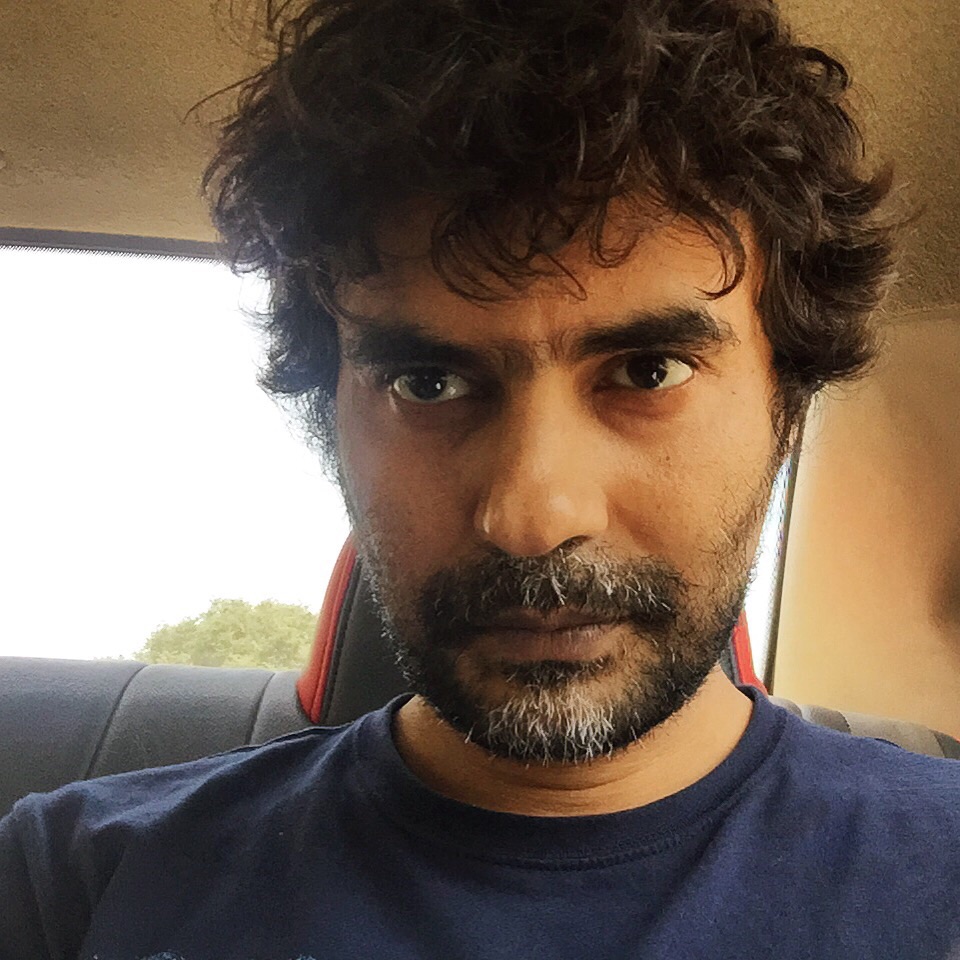
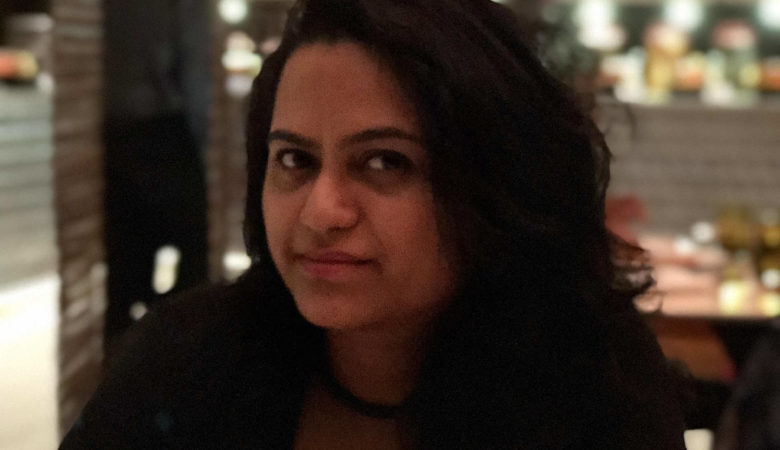
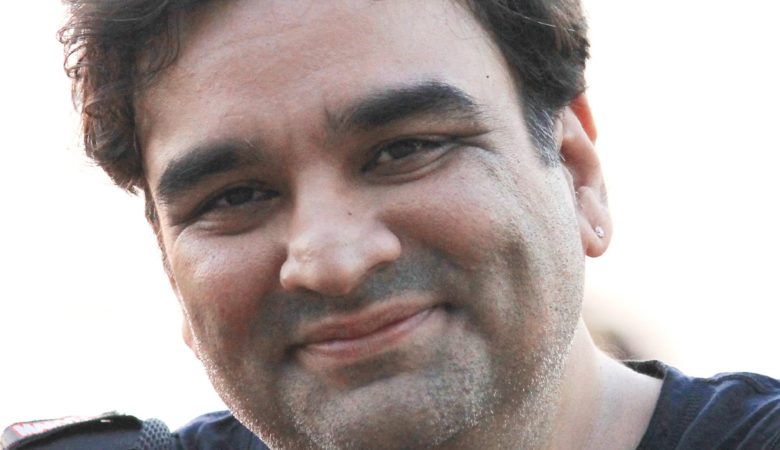
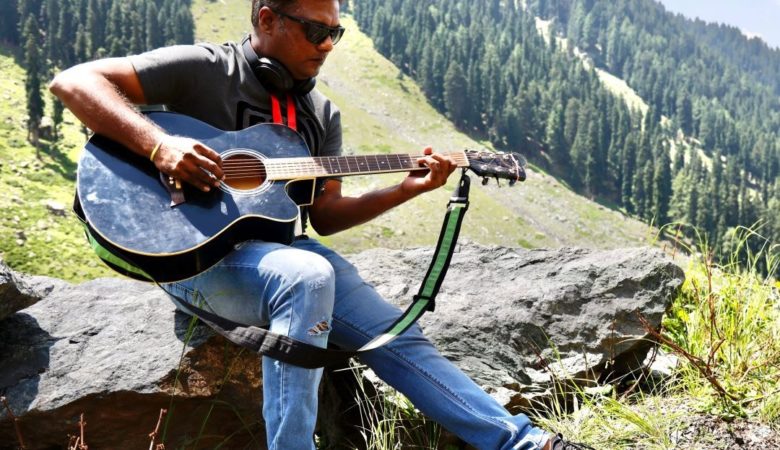
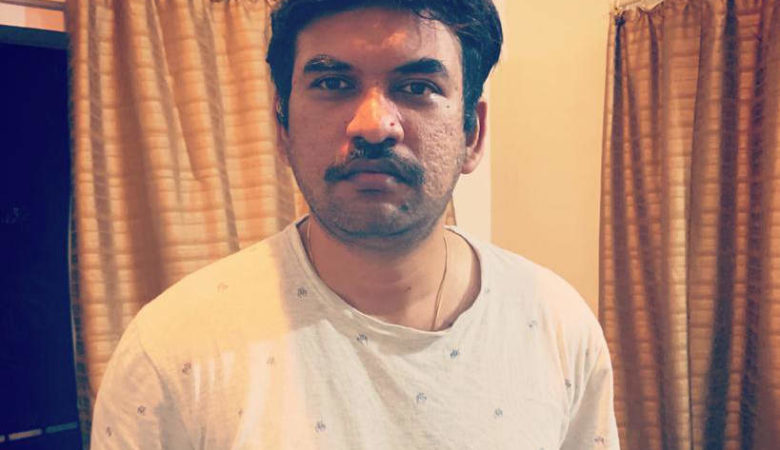

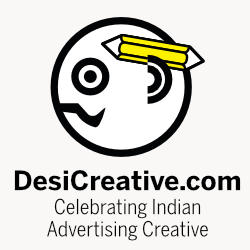
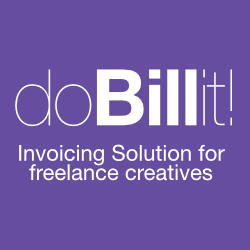
Leave a Reply